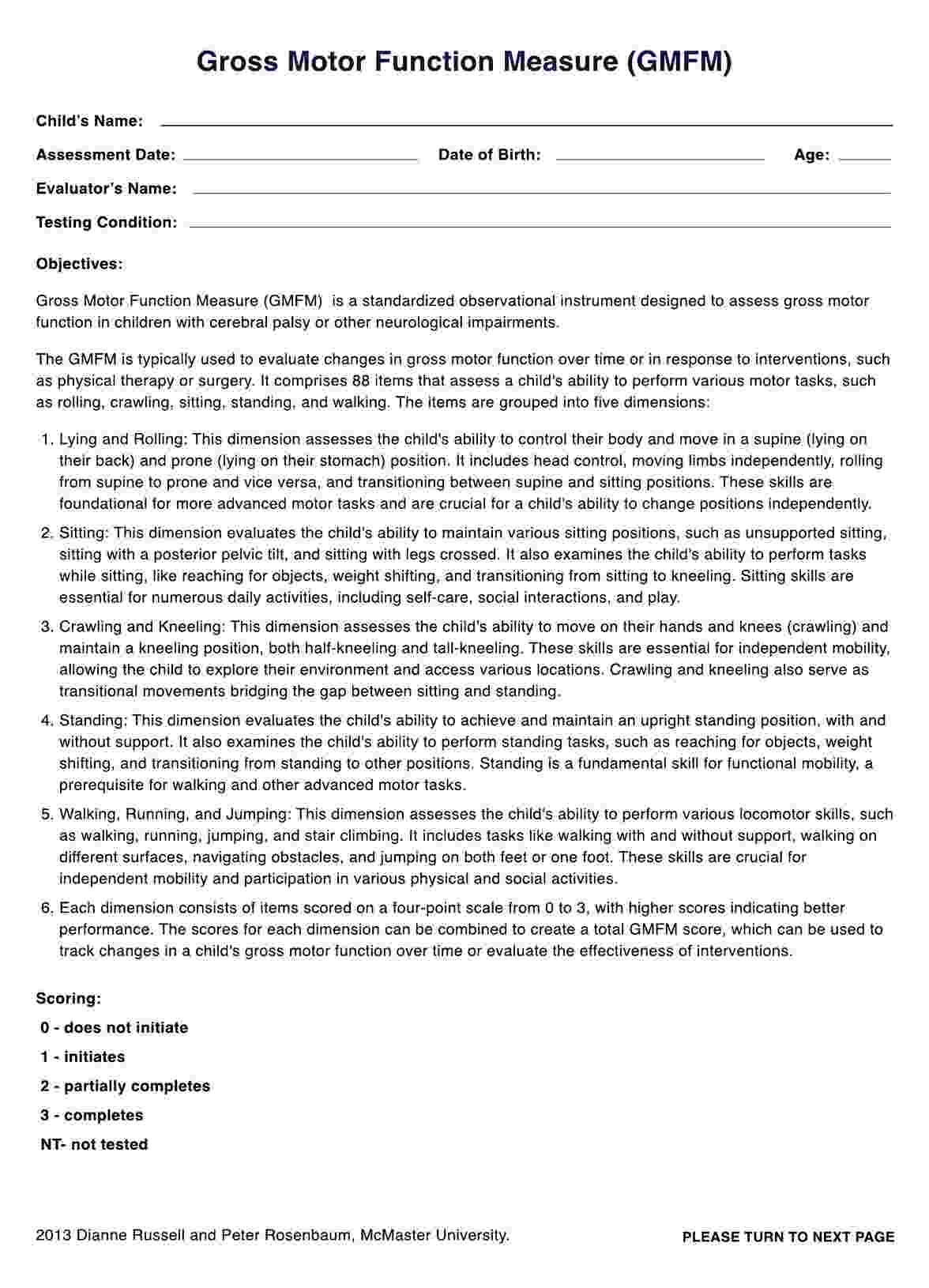The GMFM is scored on a four-point scale for each item: 0 (does not initiate), 1 (initiates), 2 (partially completes), and 3 (completes). The scores for each dimension can be combined to create a total GMFM score.

Gross Motor Function Measure
Discover the Gross Motor Function Measure (GMFM), a valuable tool for assessing children with cerebral palsy or neurological impairments. Download a free PDF example.
Gross Motor Function Measure Template
Commonly asked questions
The GMFM measures a child's gross motor function in five dimensions: lying and rolling, sitting, crawling and kneeling, standing and walking, running, and jumping.
The GMFM is administered by a trained evaluator, who guides the child through each item and observes their performance. The evaluator scores each item based on predetermined criteria, calculates the scores for each dimension and the total GMFM score, and documents the child's performance and relevant observations.
Preparation, establishing rapport, warming up, assessing, scoring and interpreting, and documentation and communication are all essential steps in administering the GMFM effectively. The evaluator must be familiar with the GMFM scoring manual and practice scoring items to build their skills and confidence in using the instrument.
EHR and practice management software
Get started for free
*No credit card required
Free
$0/usd
Unlimited clients
Telehealth
1GB of storage
Client portal text
Automated billing and online payments











